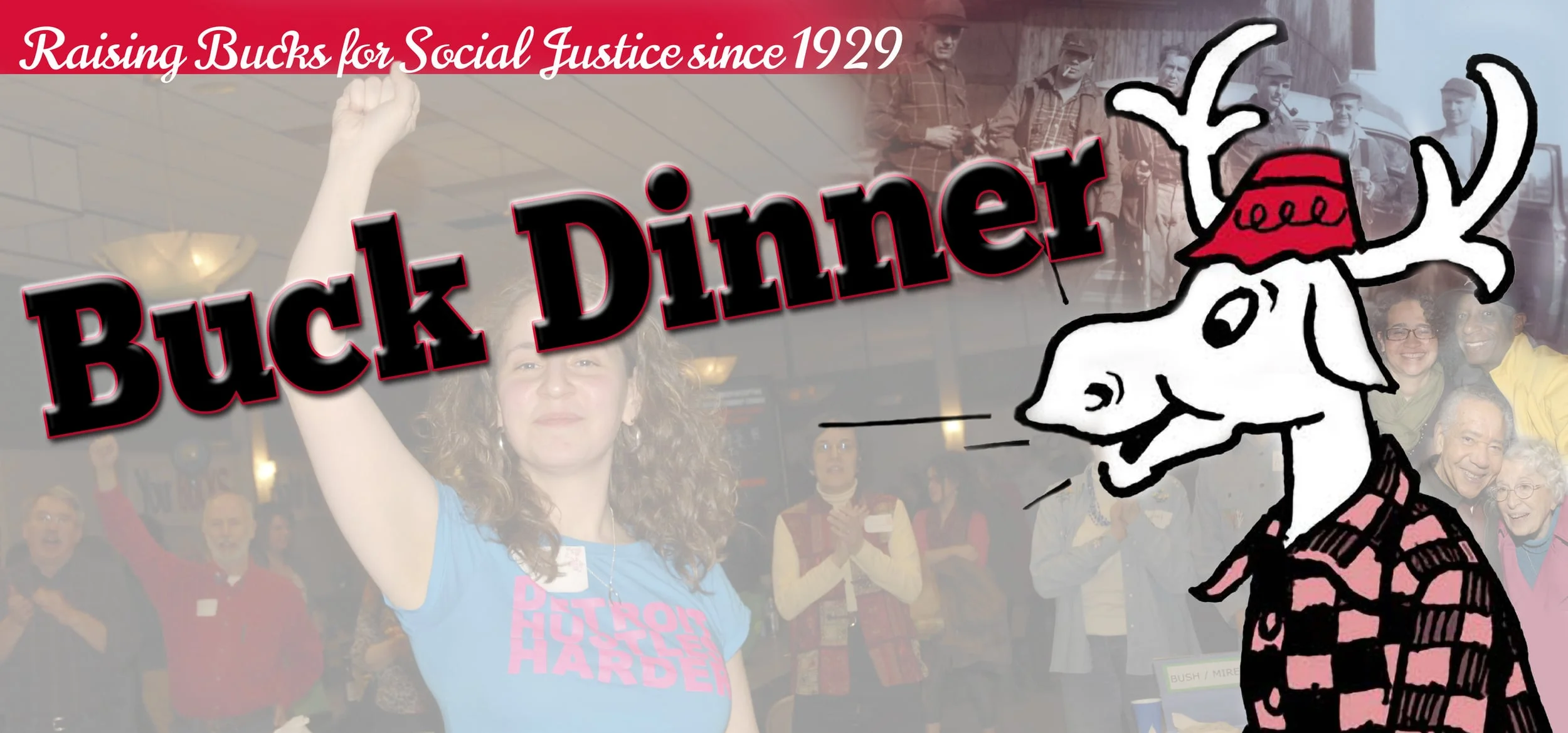Maurice Sugar
Maurice Sugar, a legendary figure in Detroit labor and civil rights communities, was the son of Lithuanian immigrants who settled in Michigan’s Upper Peninsula. Born in 1891, Sugar grew up enamored of the lumberjack lore of the north woods and his early learning on labor and class conflict came from their work world experiences and, later, his family’s struggle to make a living in Detroit.
Sugar chose to study law at the University of Michigan partly because it had a three year degree program that would be cheaper than paying for four years at school. While there Sugar’s experiences were shored up by socialist politics. His first labor case came in 1916 when the International Typographers Local 18 hired him to represent the local during a strike.
His beliefs were put to the test in 1918 when he refused to serve in the military during World War I and served a 10-month jail sentence. After imprisonment, Sugar continued his leftward development and involvement in labor issues. He soon became a legal bulwark of the developing autoworkers’ organizing efforts.
Early on Sugar displayed his endearing talent for parody songwriting as he worked with unions, unemployed councils and civil rights fighters. During a March 6, 1930 rally of the Detroit Unemployed Council, his “Soup Song” was sung by thousands in Detroit, and indeed, became an anthem across the country for activists.
Soup Song by Maurice Sugar
Words by Maurice Sugar
Sung to the melody of “My Bonnie Lies Over the Ocean.”
I’m spending my night at the flop house
I’m spending my days on the street
I’m looking for work and I find none
I wish I had something to eat.
Chorus
Sooo-oup, sooo-oup, they give me a bowl of sooo-oup
Sooo-oup, sooo-oup, they give me a bowl of soup.
I spent twenty years in the factory
I did everything I was told
They said I was loyal and faithful
Now, even before I get old.
I saved fifteen bucks with my banker
To buy me a car and a yacht
I went down to draw out my fortune
And this is the answer I got.
I fought in the war for my country
I went out to bleed and to die
I thought that my country would help me
But this was my country’s reply.
I went on my knees to my maker
I prayed every night to the Lord
I vowed I’d be meek and submissive
And now I’ve received my reward.
In the ensuing years, Sugar was involved in many of Detroit’s most crucial progressive actions. He defended participants in the 1932 Hunger March when Ford Motor Company thugs killed four marchers. He helped found the National Lawyers Guild in 1936 as a way for left and liberal lawyers to connect with each other regarding their causes. During the 1936-37 General Motors Flint Sit Down strike that established the United Auto Workers union nationwide, Sugar was lawyer for the union and the key union liaison with Michigan Gov. Frank Murphy. And he worked hard to develop the coalition between labor and the African-American community that led to the UAW’s 1941 organizing of workers at Ford.
Sugar wrote the UAW constitution in 1939 and served as the union’s General Counsel from 1939 until 1947 when he was fired following a factional dispute. After that, he and his wife moved up north to their land on Black Lake and he retired from practicing law.
Still, there was at least one major legal effort left in the pioneer. During the 1950 case U.S. v. Dennis, a McCarthy-era offensive against communists, Sugar went to New York to advise the lawyers on the case. Having spent time in prison, Sugar could not appear in federal court. Maybe that turned out to be providential. In the end, the judge convicted all the defense attorneys of contempt. George Crockett, an African-American lawyer who had worked with Sugar in the UAW and later became a U.S. Congressman, served a jail term for the conviction.
In 1951, some of the lawyers Sugar had mentored, Ernest Goodman, George Crockett, Mort Eden and Dean Robb banded together to form the first integrated law firm in the United States. Focusing on workers compensation and personal injury law at first, the firm later became early and strong backers of the Civil Rights and anti-war movements.
In 1975, after the 1971 Attica prison uprising, Ernest and son, Bill Goodman, along with Heywood Berg, several other lawyers, and investigator Linda Boris, took on the defense of inmates who were charged with murder. Ernest Goodman’s defense of Shango Bahati Kakawama (Morris Chestnut) was so strong that Shango’s successful defense led to charges being dropped against others.
In 1966, celebrated George Crockett’s inauguration as Recorders Court judge with members of the Goodman firm. From left are: Dean Robb, Robert Millender, Sugar, Crockett, Ernest Goodman and George Bedrosian. Photo: Walter Reuther Library, Wayne State University
The Goodman law firm, as it is usually called, sustained as a living monument to what Sugar started in the 1930s and carried out that tradition until closing in 1998 after the death of Ernest Goodman.
Maurice and Jane Sugar in 1962.
Sugar maintained his relationship with the Buck Dinner, either attending or sending his humorous “Message from the President” parodies. He passed away in 1974, leaving behind his wife, a tremendous progressive legacy and at least one annual dinner party when he is well remembered.
